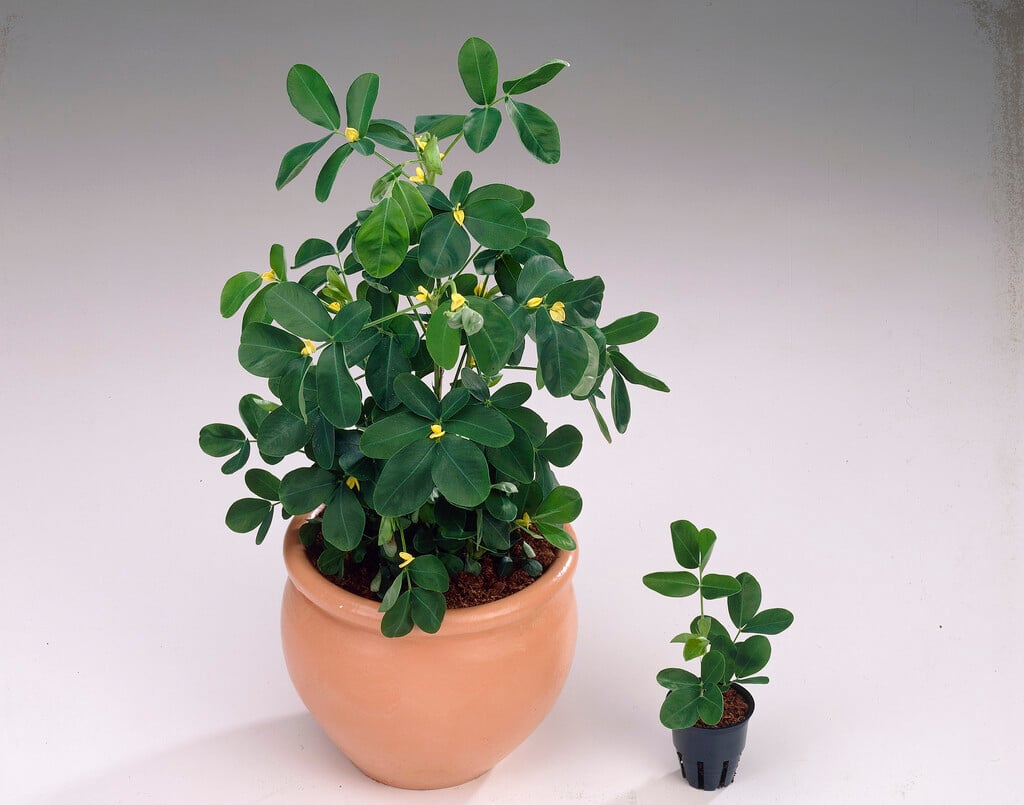Arachis hypogaea
peanut
A leguminous plant grown as an annual and cultivated for its edible fruit- the peanut. Leaves are divided into four leaflets and small, pea-like yellow flowers with orange veining up to 1.5cm across are borne from mid- to late summer. Following pollination, the flower stem elongates and dips pushing the ovary into the ground where the fruit develops
Other common names
manilla nutmonkey nut
see morepinder
underground bean
earth almond
earth nut
grass nut
ground nut
Size
Ultimate height
0.1–0.5 metresTime to ultimate height
1 yearUltimate spread
0.1–0.5 metresGrowing conditions
Moisture
Moist but well–drained, Well–drainedpH
Acid, Alkaline, NeutralColour & scent
| Stem | Flower | Foliage | Fruit | |
| Spring | Green | |||
|---|---|---|---|---|
| Summer | Yellow Orange | Green | ||
| Autumn | Green | |||
| Winter |
Position
- Full sun
Aspect
South–facing or West–facing
Exposure
Sheltered Hardiness
H2Botanical details
- Family
- Fabaceae
- Native to GB / Ireland
- No
- Foliage
- Deciduous
- Habit
- Bushy
- Potentially harmful
- Humans/Pets: Seeds not edible. Wear gloves and other protective equipment when handling For further information and contact numbers regarding pets, see the HTA guide to potentially harmful plants
- Name status
Correct
How to grow
Cultivation
Under glass grow in light, free-draining compost in full sun Requires a long growing season to produce viable crops of peanuts so generally not suited to growing outside for this purpose in most of the UK
Propagation
Propagate by seed. See sowing vegetable seeds
Suggested planting locations and garden types
- Mediterranean climate plants
- Sub-tropical
- Patio and container plants
- Conservatory and greenhouse
- Edible fruit
Pruning
No pruning required
Pests
Generally pest-free
Diseases
Generally disease-free
Get involved
The RHS is the UK’s gardening charity, helping people and plants to grow - nurturing a healthier, happier world, one person and one plant at a time.
